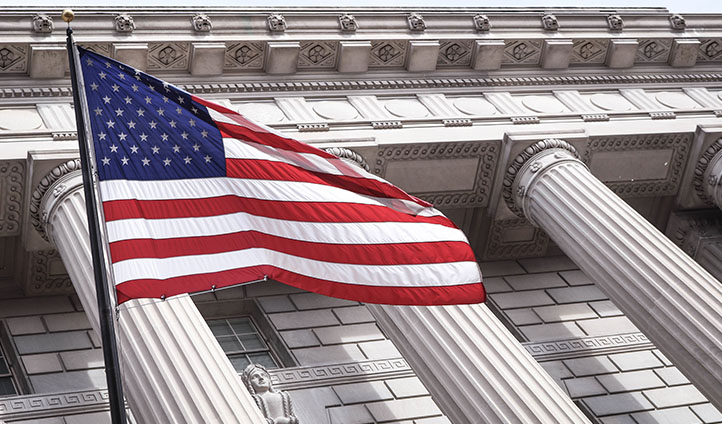Supreme Court Removes Trump Travel Ban from Calendar

The U.S. Supreme Court recently removed Trump v. International Refugee Assistance Project and Trump v. Hawaii from its October calendar. The justices were scheduled to hear oral arguments on President Donald Trump’s travel ban on October 10, 2017.
As discussed in greater depth in a prior post on the travel ban, President Trump’s March 6 executive order, Protecting the Nation From Foreign Terrorist Entry Into the United States, Exec. Order No. 13780 (EO), suspended the entry of nationals from six Muslim countries for 90 days. The EO stated that the temporary ban is necessary to prevent dangerous individuals from entering the country while the Executive works to establish “adequate standards . . . to prevent infiltration by foreign terrorists.” The EO also suspends “decisions on applications for refugee status” and “travel of refugees into the United States under the USRAP” for 120 days following its effective date.
On June 27, 2017, the Supreme Court held in Trump v. International Refugee Assistance Project, 582 U. S. ____ (2017), that individuals from affected countries who have “a credible claim of a bona fide relationship with a person or entity in the United States” must still be allowed to enter the country. The justices agreed to fully consider the legality of the travel ban during the first session of the October Term 2017.
However, on September 24, President Trump issued a new proclamation restricting travel to the United States for citizens from eight countries, which replaced provisions of the existing travel ban that expired on the same day. The second part of the EO, which temporarily suspended the admission of refugees, expires on October 24. In light of these developments, the Supreme Court issued the following order:
The parties are directed to file letter briefs addressing whether, or to what extent, the Proclamation issued on September 24, 2017, may render cases No. 16-1436 and 16-1540 moot. The parties should also address whether, or to what extent, the scheduled expiration of Sections 6(a) and 6(b) of Executive Order No. 13780 may render those aspects of case No. 16-1540 moot.
The Court indicated that it may return the cases to its calendar pending its consideration of the above issues. However, it appears that the justices may be able to sidestep one of the most politically-charged cases of the term.
Previous Articles
SCOTUS Wraps Up Oral Arguments for the Term
by DONALD SCARINCI on May 17, 2022
The U.S. Supreme Court has concluded its oral arguments for the October 2021 Term. The justices hea...
SCOTUS Rules Censure of Elected Board Member Didn’t Violate First Amendment
by DONALD SCARINCI on May 10, 2022
In Houston Community College System v. Wilson, 595 U.S. ____ (2022), the U.S. Supreme Court held th...
Supreme Court Breach Is Not the First Involving Roe v. Wade
by DONALD SCARINCI on
The recent disclosure of Justice Samuel Alito’s decision purporting to overturn Roe v. Wade is ar...
The Amendments
-
Amendment1
- Establishment ClauseFree Exercise Clause
- Freedom of Speech
- Freedoms of Press
- Freedom of Assembly, and Petitition
-
Amendment2
- The Right to Bear Arms
-
Amendment4
- Unreasonable Searches and Seizures
-
Amendment5
- Due Process
- Eminent Domain
- Rights of Criminal Defendants
Preamble to the Bill of Rights
Congress of the United States begun and held at the City of New-York, on Wednesday the fourth of March, one thousand seven hundred and eighty nine.
THE Conventions of a number of the States, having at the time of their adopting the Constitution, expressed a desire, in order to prevent misconstruction or abuse of its powers, that further declaratory and restrictive clauses should be added: And as extending the ground of public confidence in the Government, will best ensure the beneficent ends of its institution.




